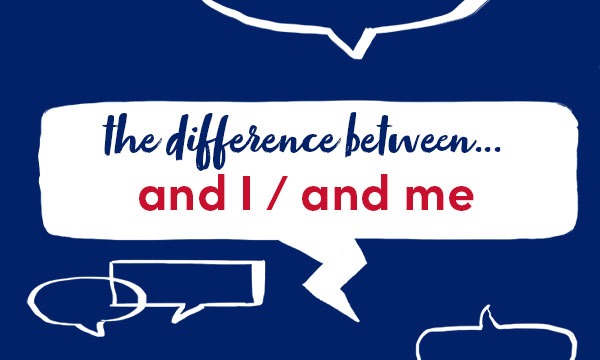
When two pronouns or a personal noun and a personal pronoun are the joint subject of a verb, the subject form of the pronouns must be used. Avoid the common mistake of saying, for example, ‘Jerry and me are…’ or ‘Me and Jerry are…’
Jerry and I are going to paint the house ourselves.
He and I are going to paint it.
Melanie and I are going shopping.
When either two pronouns or a noun plus a personal pronoun are the joint object of a verb, the object form of the pronoun must be used:
They decided to help Jane and me.
My mother gave my siblings and me a crisp two-dollar bill every Sunday.
For further information on English Grammar, visit: https://grammar.collinsdictionary.com/easy-learning
Come back for other blogs on using English in everyday situations: https://blog.collinsdictionary.com/language-learners/learning-english/
All opinions expressed on this blog are those of the individual writers, and do not necessarily reflect the opinions or policies of Collins, or its parent company, HarperCollins.



